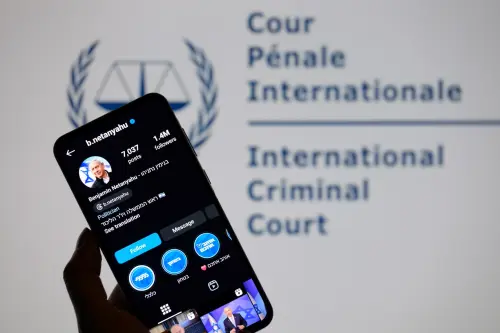Today, the Center on the United States and Europe (CUSE) hosted NATO Secretary-General Anders Fogh Rasmussen for a Statesman’s Forum address on the importance of the transatlantic alliance and how the North Atlantic Treaty Organization (NATO) is evolving to address new common security challenges. In his remarks, Secretary-General Rasmussen clearly stated that “Russia’s military aggression in Ukraine is in blatant breach of its international commitments and it is a violation of Ukraine’s sovereignty and territorial integrity.”
Ladies and gentlemen we live in a different world than we did less than a month ago. Russia’s military aggression in Ukraine is in blatant breach of its international commitments and it is a violation of Ukraine’s sovereignty and territorial integrity. The annexation of Crimea through a so called referendum held at gun point is illegal and illegitimate. And it undermines all efforts to find a peaceful political solution.
This is a wake up call for the Euro-Atlantic community, for NATO, and for all those committed to a Europe whole, free and at peace.
We know that we cannot take our security for granted. We have seen other crises in Europe in the past decades. The western Balkans in the 1990s, Georgia in 2008. But this is the gravest threat to European security and stability since the end of the cold war.
First because of its scale. With one of the largest movements of troops for many decades. Second because of the stakes. The freedom of 45 million people and their right to make their own choice. And third because this crisis is right on NATO’s border.
But Ukraine cannot be viewed in isolation. This crisis is not just about Ukraine. We see what could be called “21st century revisionism”: Attempts to turn back the clock; to draw new dividing lines on the map; to monopolize markets; shuffle populations; rewrite or simply rip up the international rule book; and to use force to solve problems rather than the international mechanisms that we have spent decades to build.
We had thought that such behavior had been confined to history. But it’s back and it’s dangerous. Because it violates international norms of accepted behavior. It exports instability. It reduces the potential to cooperate and build trust. And ultimately it undermines our security.
Not just NATO’s or Ukraine’s security, but also Russia’s. If the rules don’t apply, if agreements are not honored, certainly Russia also stands to suffer the consequences.
Russia was among those who committed in 1994 to respect Ukraine’s territorial integrity and sovereignty. Russia pledged not to threaten or use force against Ukraine. By turning its back on that agreement, Russia has called into question its credibility and reliability as an international actor. And its steps to annex Crimea are a clear violation of the United Nations charter.
Russia must honor its international commitments. Cease all military activities against Ukraine. And seek a peaceful political solution. Including through direct dialogue with the government of Ukraine because on its current course, Russia is choosing increased international isolation.
There are no quick and easy ways to stand up to global bullies. Because our democracies debate, deliberate, and consider the options before taking decisions. Because we value transparency and seek legitimacy for our choices, and because we see force as the last, not the first, resort.
The only way to address such challenges is for Europe and North America to stand together. This is what we have done from the start of this crisis. NATO’s clear position has been to condemn Russia’s military action in Ukraine. To stand firmly in support of the government in Kiev. And to make clear that President Putin’s decisions to escalate the situation have consequences.
…
No one wants to turn away from our cooperation with Russia. But no one can ignore that Russia has violated the very principles upon which that cooperation is built. So business as usual is not an option.
Ladies and gentlemen, in times like this, when the security of the Euro-Atlantic area is challenged, the North Atlantic alliance has not wavered and it will not waver.
For 65 years we have been clear in our commitment to one another as allies and to the global security system within which NATO is rooted. Our transatlantic foundation is our strength and it has given us the ability to consult, cooperate and cope with any crisis.
This does not mean that NATO is the only solution to every crisis in the Euro-Atlantic region. But I do believe it is part of every solution.
Brookings Senior Fellow and CUSE Director Fiona Hill provided introductory remarks and moderated the discussion.
Get full event audio and remarks as prepared for deliver here.
Get all Brookings research and commentary on Ukraine here.
The Brookings Institution is committed to quality, independence, and impact.
We are supported by a diverse array of funders. In line with our values and policies, each Brookings publication represents the sole views of its author(s).



Commentary
NATO Secretary-General: Russia’s Annexation of Crimea Is Illegal and Illegitimate
March 19, 2014